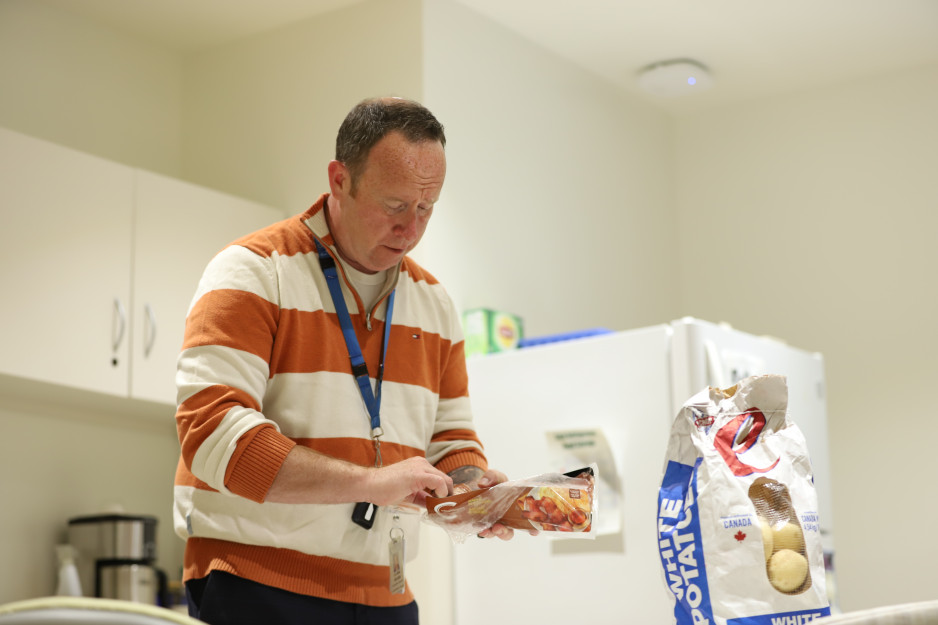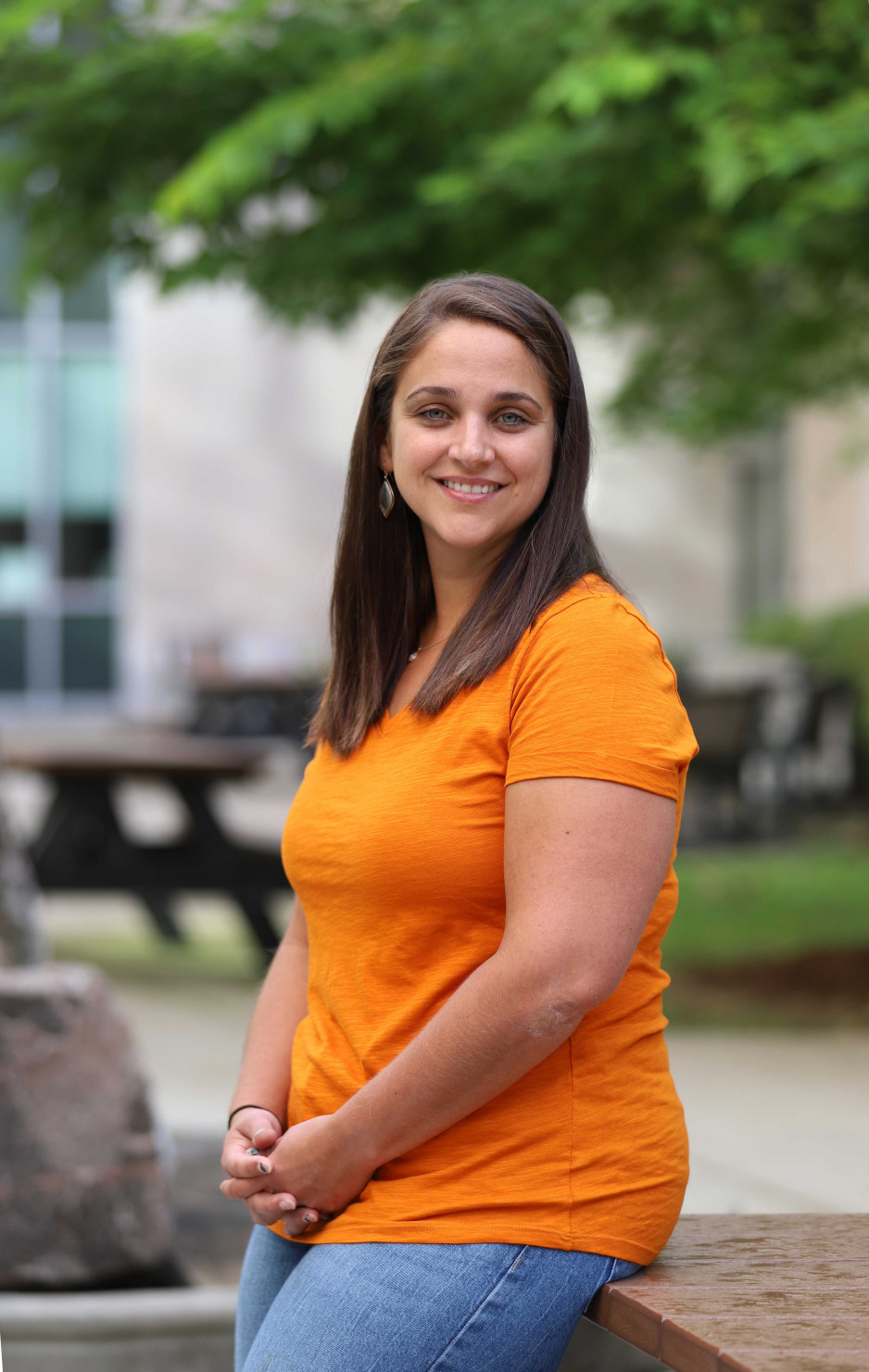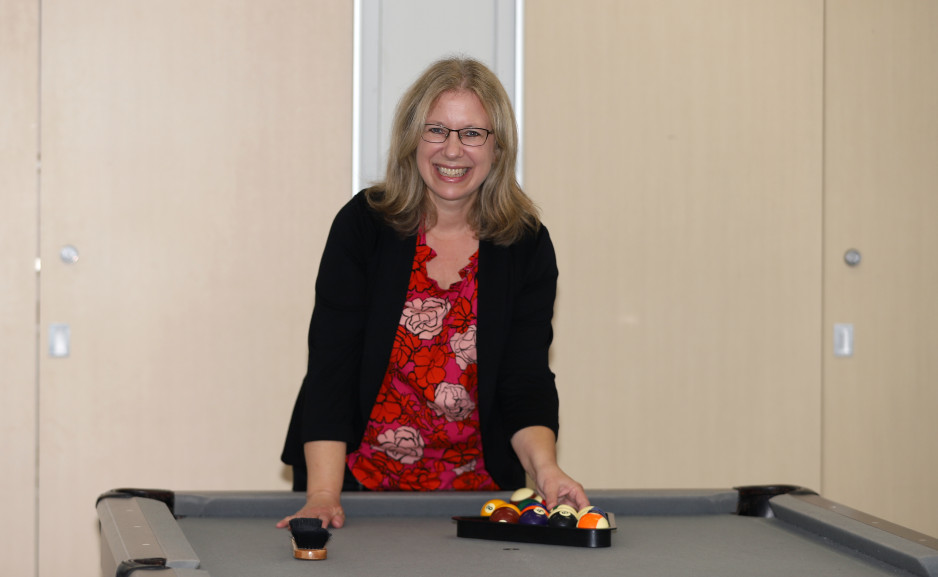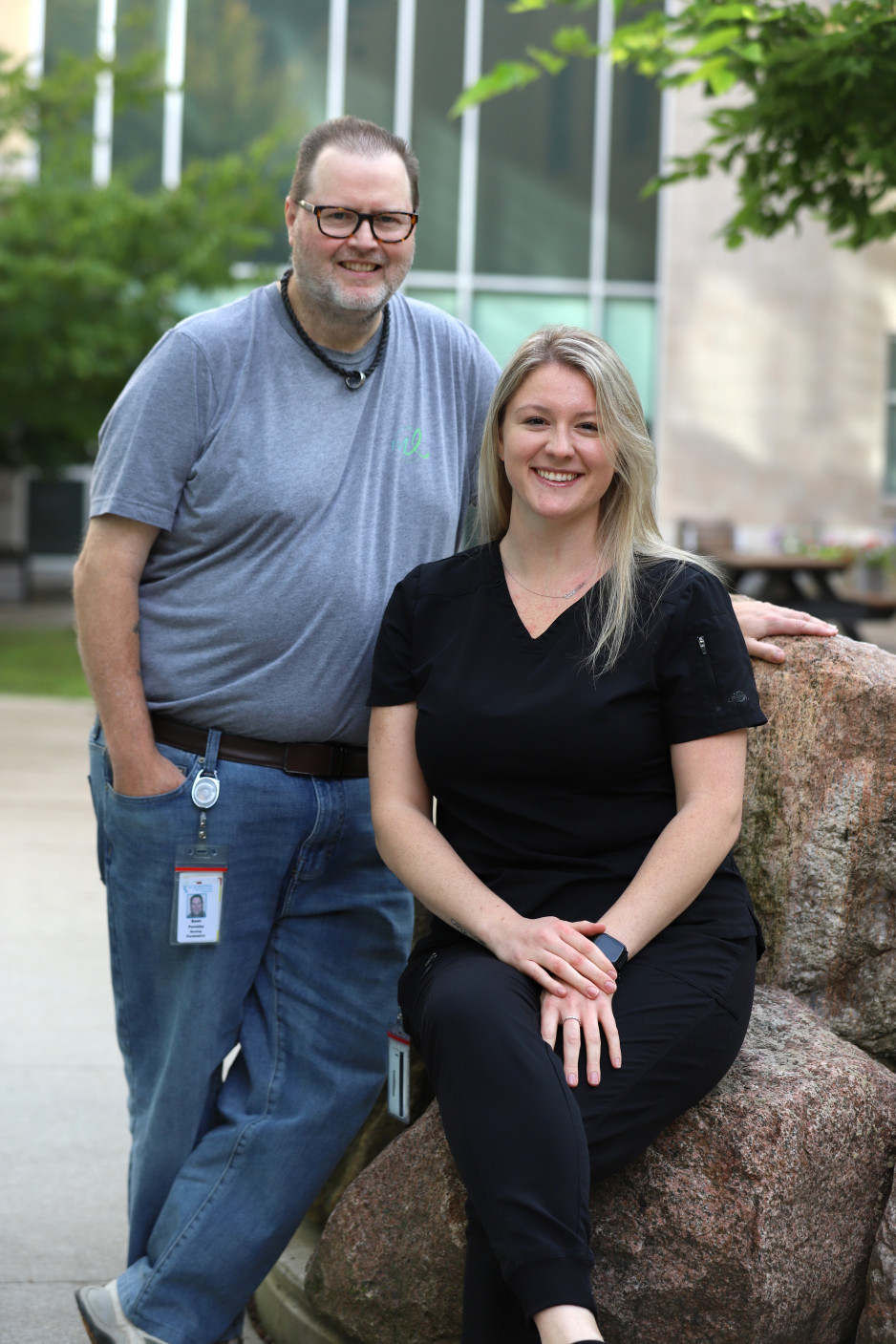A day in the life of the Forensic Rehabilitation Team
The overnight nurses complete a handover of care to the nurses starting the day-shift – reporting on how patients did overnight – medication is administered, and breakfast is served to patients. By 8:30 am, the unit’s care station is filled with a flurry of activity. The clinical team gathers to discuss the current needs of patients, any concerns and the schedule of the day. Therapeutic recreation specialists, social workers and occupational therapy staff weigh-in with activities and planned patient outings. It’s a seamless flow of conversation and support, a rhythm that shows how well the team works together for the benefit of those in their care.
Southwest Centre is designed to enable care for those living with a broad range of severe and persistent mental health conditions who have also come into contact with the law. Patients at Southwest Centre have been declared either unfit to stand trial, found not criminally responsible (NCR) on account of a mental illness, or have been referred for assessment by the criminal justice system. Patients stay on average, three to five years as an inpatient, with a goal of rehabilitation and recovery and ultimately, community reintegration.
It is important to remember that when an individual is deemed NCR, it means that the individual’s mental disorder made it impossible for them to understand the nature of what they did, or to understand that their offence was morally wrong.
All patients within Southwest Centre’s Forensic Psychiatry Program are under the jurisdiction of the Ontario Review Board (ORB) – the oversight panel that annually reviews each patient’s progress and any risk to the public.
The FRU, one of five inpatient units at Southwest Centre, focuses mainly on strengthening the skills and supports needed to transition individuals out of the hospital. Patients residing on the FRU are usually in the final stages of their care journey and once they’ve integrated back into the community, are followed for several years by the Forensic Outreach Team and remain under the disposition of the ORB.
For occupational therapist (OT) Clark Heard, one of the day’s first stops is the Rehabilitation Kitchen to support a patient who is planning on cooking up some bacon and eggs. Clark and the other team members who are assisting move easily around the kitchen, turning on the radio and getting the patient set up. An OT with St. Joseph’s for 22 years, Clark believes meal prep plays a vital role in preparing patients for returning to life off the unit – whether that’s the on-site Rehabilitation Apartment at Southwest Centre, or a home within the community.
“For a majority of our patients, their goal is to eventually be re-integrated back into their community,” says Clark. “So, we’re looking at their knowledge of community living skills and their occupational performance.”
Clark and other members of the clinical FRU team support many daily activities and programs, both within the hospital and in the community. From meal prep and meditation, to transportation and budgeting – anything patients require to successfully return to living independently, the team supports.
At Southwest Centre, care teams have the day-to-day opportunity to help treat and advocate for some of society’s most vulnerable and marginalized individuals. Unfortunately, stigma and shame are all too common in the world of forensic mental health care. Patients receiving treatment within a forensic facility are often subject to the double stigma of having a mental illness and also coming into contact with the law, shedding a negative shadow on those receiving care.
“There are many misconceptions about forensic patients,” adds Clark.
“There’s a unique humanity in our patients…they are often defined by their worst five minutes rather than by who they are. It’s our job to help our patients get back to that – my patient enjoys making eggs and bacon the same as anybody else.”
Social worker Hilary Haskell also works on the unit and supports each inpatient’s ultimate goal of recovery. Raised by a forensic mental health care nurse, she always knew she wanted to follow in her mother’s footsteps. For Hilary, her role as a social worker is different than what many think of when they think of the profession – it's broad and looks different every day. Her responsibilities range from understanding the patient and their needs, to arranging family meetings, connecting with community agencies for housing referrals, and assistance with financial planning. She also helps to advocate on behalf of patients and provides brief counselling sessions when needed.
“On the rehab unit, we’ve witnessed patients come through their entire wellness journey and now they’re hopeful, enthusiastic and able to move forward,” says Hilary.
“It’s really nice to see the smiles on their faces when they are well enough for a community pass, or finally get housing. It fills my cup.”
- Hilary Haskell, social worker, Southwest Centre
Another integral part of community re-integration includes recreational therapy. This work is done by Catherine Stright, therapeutic recreation specialist, who uses recreation assessments with patients to help them determine their goals, any barriers, and a plan for life in the community. Hospital-wide activities are planned for all patients by Catherine and her colleagues and most patients on the FRU can access community resources and activities, either with the support of Southwest Centre staff members, or on their own for small windows of time.
“Our patient population is unique in that the leisure activities introduced to them through recreational therapy at Southwest Centre can be continued once they integrate back into the community,” says Catherine.
For Catherine, the motivation that patients have to make it through their care journey and complete that integration is one of the most common misconceptions about forensic patients.
“Our patients are highly motivated to meet their goals,” she adds. “They work very hard and it brings me joy to see them find the activities they’re passionate about and continue them after they leave.”
Nursing in forensic mental health care looks different than other clinical nursing assignments. In addition to typical nursing duties – medication administration, managing care needs, etc. – nurses on the FRU play a large role in setting patients up for community success by identifying job skills and assisting them in finding suitable housing. The FRU nursing team also typically follows patients for 30 days after discharge and works with the Forensic Outreach Team for a seamless transition in care.
But ask any member of the FRU team and they’ll say it is the multidisciplinary approach that makes the program successful.
“Nobody progresses through the system because of one person,” says Sean Parmley, an RPN who’s been working in forensic mental health care for almost two years and has been with St. Joseph’s for over 30. “They succeed because of our team approach,” adds Sean.
Across the forensic rehabilitation team, similar sentiments are shared by care providers; their patients are people who deserve care, treatment and rehabilitation.
And while recovery in mental illness may not mean a complete absence of the illness, it does mean creating a plan that works for each individual, enabling them to manage the illness and its symptoms. It’s the job of the broader care team – working together with the patient and their supporters – to develop this plan and work towards their goals.



